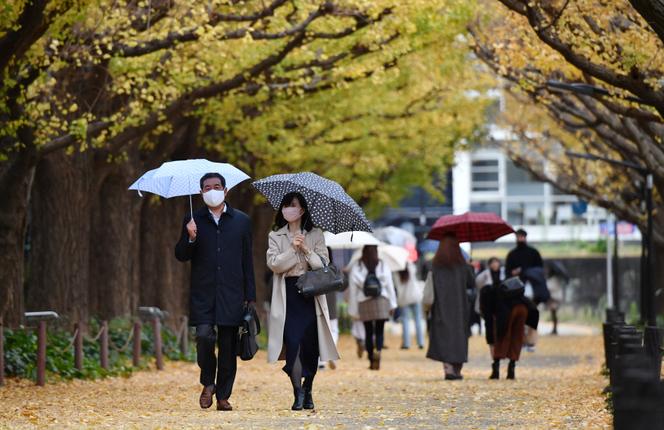

LETTER FROM TOKYO

With its insatiable appetite for keeping up with the times, Tokyo has demonstrated a great capacity for adaptation in the course of its modern history. But the Japanese capital has obliterated much of its past and is now moving toward becoming one of those Asian megacities that desperately resemble one another. Many Tokyo residents are aware of this.
A plan to redevelop the Jingu Gaien complex is causing an uproar. If it goes ahead, it will damage Meiji Jingu Gaien Avenue, a street some 300 meters long lined on either side with a double row of century-old ginkgo trees, and will result in the felling of a thousand trees in the Meiji Shrine's outer gardens. The idea is to transform the area around the national stadium that was built for the 2020 Olympics, replacing several sports venues such as the Chichibunomiya Rugby Stadium with more modern structures topped by shopping centers and high-rise buildings. The developers have promised to plant new trees once the work is completed.
By mid-November, the foliage of the ginkgo trees reaching toward the intense blue of the autumn sky forms a golden tunnel, offering a spectacle of great beauty that delights tens of thousands of walkers. The ginkgo, known in Japanese as icho, is the symbol of Tokyo, synonymous with serenity and life force. Occupying a special place in the cultures of the Far East, it is an integral part of the Japanese landscape.
A petition signed by some 240,000 Tokyo residents has called for the plan to be canceled. There are celebrities among the opposition. Writer Haruki Murakami has condemned the redevelopment. In one of their recent songs, the popular rock band Southern All Stars described an "oasis of peace soon to be transformed into a concrete jungle." Shortly before his death in March, composer Ryuichi Sakamoto (1952-2023) called on Tokyo Governor Yuriko Koike "not to sacrifice precious trees, which our ancestors protected for a century, for economic gain."
The International Council on Monuments and Sites (ICOMOS), an association for the protection of the world's cultural heritage and an advisory body to UNESCO, has also issued an alert. "Jingu Gaien has been part of Tokyo's natural heritage since the 17th century," said Mikiko Ishikawa, director of ICOMOS Japan. "The plan will result in the destruction of this magnificent line of ginkgo trees, created thanks to donations and volunteer work by Tokyo citizens in honor of Emperor Meiji [1867-1912], in exchange for the authorities' promise to protect these trees for eternity. It's a 'people's park' without parallel in world history." At a time when "climate change is demonstrating the importance of natural heritage in the city," stressed ICOMOS in a message to Prime Minister Fumio Kishida, the idea "must be abandoned."
You have 41.01% of this article left to read. The rest is for subscribers only.
